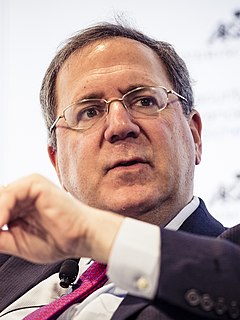A Quote by Barack Obama
US intelligence agencies will only use such data to meet specific security requirements: counterintelligence, counterterrorism, counterproliferation, cybersecurity, force protection for our troops and allies, and combating transnational crime, including sanctions evasion.
Related Quotes
To enhance the defense of the other agencies of government, including our law enforcement agency - it's so important. They're doing such a great job, by the way. We will put together a team of our best military, civilian, and private sector cybersecurity experts to comprehensively review all of our cybersecurity systems and technologies.
Mathematics alone make us feel the limits of our intelligence. For we can always suppose in the case of an experiment that it is inexplicable because we don't happen to have all the data. In mathematics we have all the data, brought together in the full light of demonstration, and yet we don't understand. We always come back to the contemplation of our human wretchedness. What force is in relation to our will, the impenetrable opacity of mathematics is in relation to our intelligence.
We have a lot of cards to play in getting people to work together, as well as protecting our allies. And, at the end of the day, there is a military threat that has to be posed, and it should be very clear: If Kim Jong-un attacks our allies or any part of America, including Guam, we will retaliate with devastating force.
We also have to work, though, sort of the dark side, if you will. We've got to spend time in the shadows in the intelligence world. A lot of what needs to be done here will have to be done quietly, without any discussion, using sources and methods that are available to our intelligence agencies... That's the world these folks operate in, and so it's going to be vital for us to use any means at our disposal, basically, to achieve our objective.
Our emphasis here is based not only on the growing seriousness of drug-related crimes, but also on the belief that relieving our police and our courts from having to fight losing battles against drug use will enable their energies and facilities to be devoted more fully to combating other forms of crime.
The libertarian approach is a very symmetrical one: the non-aggression principle does not rule out force, but only the initiation of force. In other words, you are permitted to use force only in response to some else's use of force. If they do not use force you may not use force yourself. There is a symmetry here: force for force, but no force if no force was used.
Third, we will continue to draw on our substantial counterterrorism capabilities to prevent ISIL attacks. Working with our partners, we will redouble our efforts to cut off its funding; improve our intelligence; strengthen our defenses; counter its warped ideology; and stem the flow of foreign fighters into - and out of - the Middle East. And in two weeks, I will chair a meeting of the UN Security Council to further mobilize the international community around this effort.
































